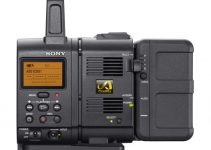DaVinci Resolve has come a long way in recent years, having evolved from an advanced color grading platform into a full-fledged creative suite that now can handle both coloring and editing functions equally well.
Even though Resolve’s editing tools are relatively new, they’re complete enough to tackle not just basic editing tasks on a day-to-day basis but also allow video editors to do seemingly complex effects with ease. Let’s say, for instance, you want to reveal text or logo behind an object. In the video below, Theo of Miesner Media will show you how to pull off this particular effect inside DaVinci Resolve 14 in less than five minutes.
First, start off by importing your clip into the program. Then switch to the edit pane and duplicate your footage, placing the copy two layers above the original. In this case, the object that will be in front of the graphic is a small editing mixer panel that has a rectangle shape. To get the effect done, either import your logo or create a text layer while placing them between the original and duplicate layers.
Next, you need to create a mask of the object in the footage and track its motion. To do this, go inside of the Color panel. Create a power window that covers your object. In the case of the video, Theo creates a rectangle power window to mask out the mixer.
Afterward, you need to open up the tracker and disable the Perspective 3D Track. Click the play button and allow the program to track the subject. Unfortunately, Resolve’s tracking algorithms are not as mature as those found in Adobe’s applications. Therefore some manual correction may be necessary.
To correct mistakes in the track, go to the Keyframes panel and click the white keyframe button on the Corrector 1 track. As you play back your footage, adjust the position of the power window and make sure to add some feathering to help your mask blend in with the clip.
The last step for this effect is to create an alpha output so that the text can be seen. This can be done by right-clicking in the nodes panel and then selecting Add Alpha Panel. Finally, click the blue triangle on your main node and drag into the recently created alpha output node.
Voila! When you return to the edit window, you can play back the footage and see the final result. In addition, the effect’s complexity can be taken up a notch, depending on the subject(s) and motions that are in the frame.
Last but not least, feel free to add some color grades or go back and make any adjustments if necessary to perfect the look of your composition.
[source: MiesnerMedia]
Disclaimer: As an Amazon Associate partner and participant in B&H and Adorama Affiliate programmes, we earn a small comission from each purchase made through the affiliate links listed above at no additional cost to you.


